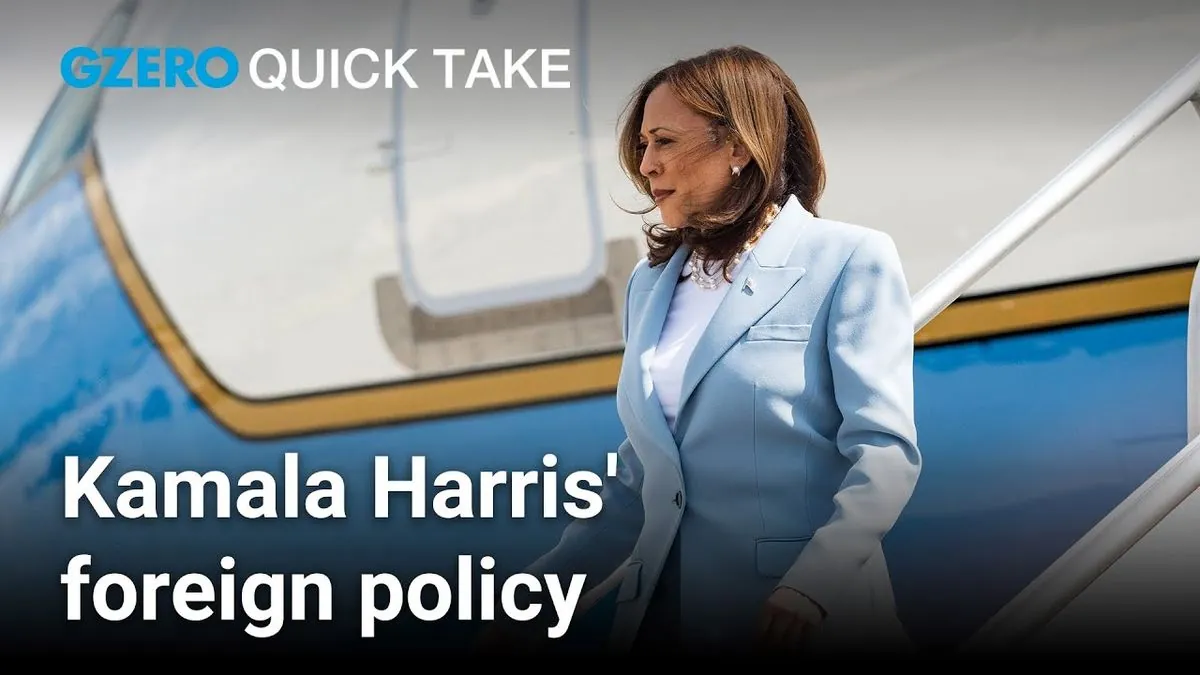Harris's Advisors Advocate Shift from US Global Hegemony to 'Open World' Strategy
Key advisors to Vice President Kamala Harris propose a dramatic shift in US foreign policy, moving away from global hegemony towards maintaining an open international system, reflecting on past interventionist failures.

In a potential shift from decades of US foreign policy, Vice President Kamala Harris's key advisors are advocating for a significant change in America's global role. This new approach, if implemented, could mark a departure from the long-standing pursuit of US hegemony towards a more modest goal of maintaining an open international system.
Philip Gordon, Harris's national security advisor, and Rebecca Lissner, her deputy national security advisor, have outlined their views in recent publications. Their ideas suggest a future US foreign policy that acknowledges past excesses and dramatically lowers its ambitions.
Lissner, in her 2020 book "An Open World," argues that the US should abandon the goal of strategic primacy and the "increasingly obsolete post-Cold War 'liberal international order.'" Instead, she proposes a strategy focused on preserving an open global system where the US can prosper without attempting to transform the world in its image.

Gordon's 2020 book, "Losing the Long Game," critically examines failed US regime change efforts in the Middle East over the past 70 years. He argues that these interventions, from Iran in 1953 to more recent efforts in Iraq and Syria, have consistently underestimated challenges, overstated threats, and failed to anticipate the resulting chaos.
"As different as each episode was, and as varied as were the methods used, the history of regime change in the post-World War II Middle East is a history of repeated patterns."
These policy failures have had far-reaching consequences. The Iraq War, for instance, not only drained US resources but also exposed military vulnerabilities and undermined global trust in American leadership. As David Kilcullen notes in "The Dragons and the Snakes," these "inconclusive wars" have sapped US energy while rivals prospered.
The proposed shift in strategy is not without challenges. Domestic polarization and ongoing global crises may complicate efforts to implement a less interventionist approach. The US response to Russia's invasion of Ukraine and the Israel-Hamas conflict has shown the difficulty of fully stepping back from its traditional leadership role.
However, the changing global landscape necessitates a reevaluation of US foreign policy. With China's economic model facing challenges and the European Union lagging behind economically, the US finds itself in a unique position to redefine its global role.
If Harris were to win the presidency in November 2024, her administration might pursue this new "open world" strategy. This approach could focus on maintaining global openness and addressing critical issues like climate change and AI regulation, rather than pursuing ideological crusades or containment strategies.
As the world grapples with complex challenges, the US may need to find a balance between its traditional leadership role and a more restrained approach. The ideas put forth by Harris's advisors could shape a foreign policy that acknowledges past mistakes while adapting to the realities of a changing global order.


































